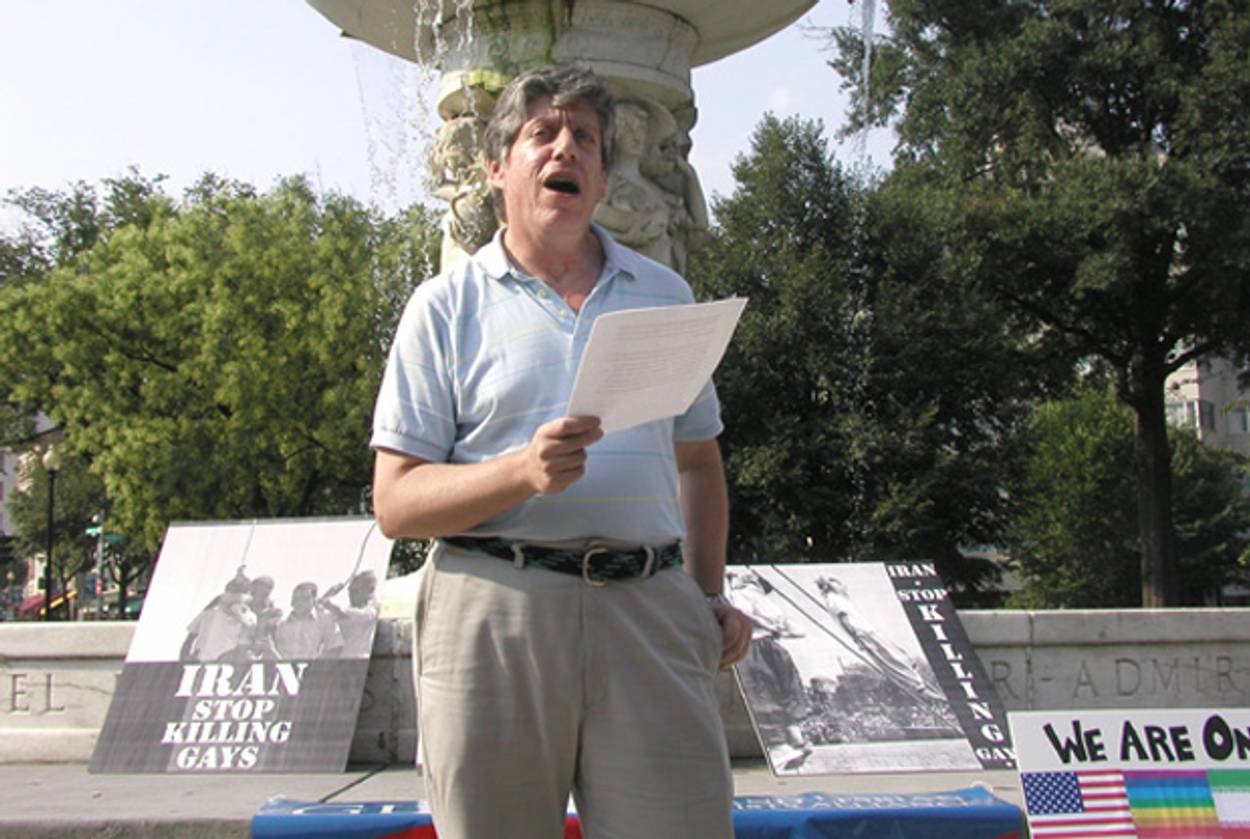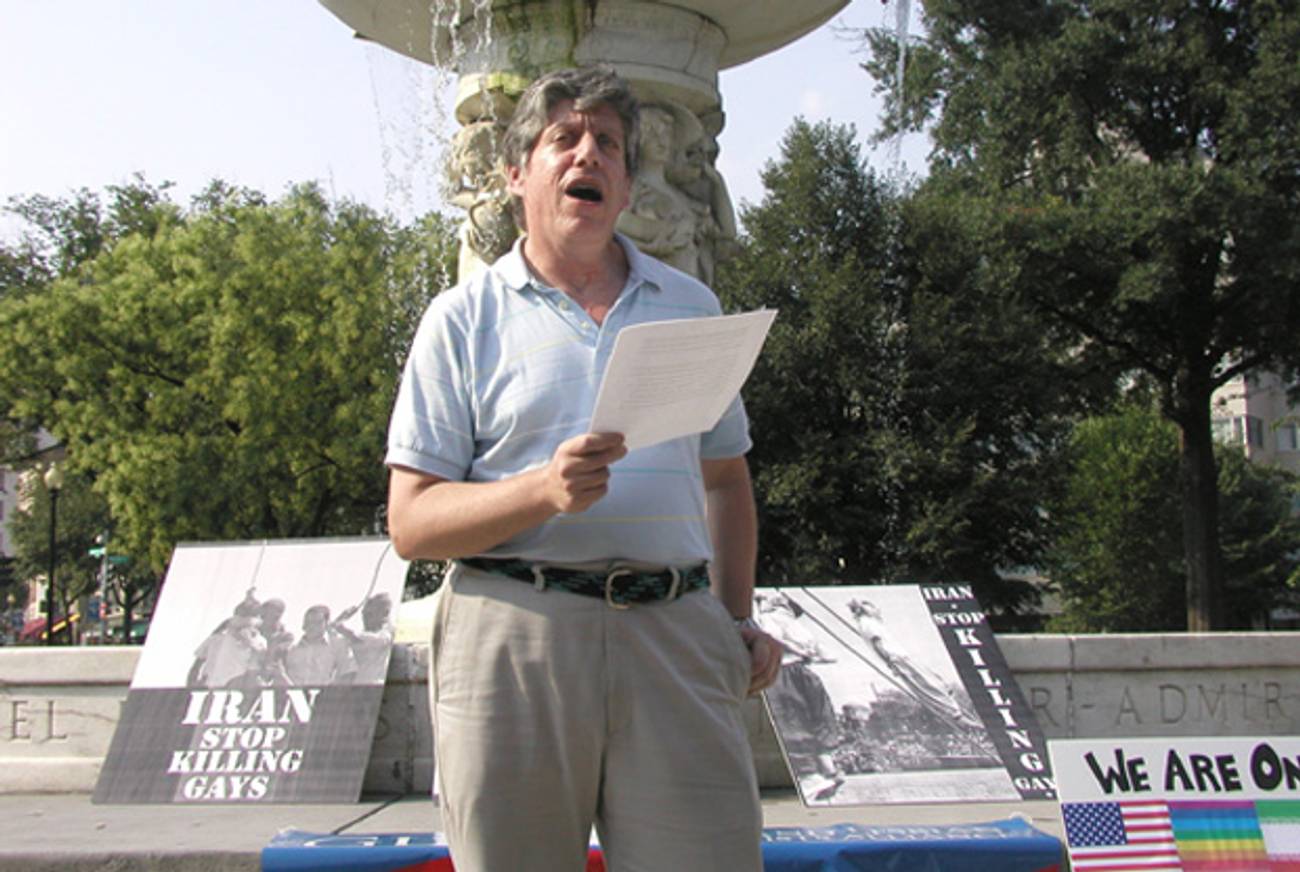Remembering LGBT Legal Activist Barrett Brick
Fought to record anti-gay violations in State Department’s human rights report




The Russian government’s passage of a law this summer prohibiting so-called gay “propaganda” to minors has sparked a wave of international outrage directed at that country not seen since the plight of the Soviet Jewish refuseniks stirred a quarter of a million people to march on Washington in 1987. Someone who would have appreciated the connection between the two human rights causes, and who did much to unite them, was Barrett Brick, who died last month from cancer at age 59.
Barrett, who spent 30 years working as a lawyer for the Federal Communications Commission, was one of the first Washingtonians I met before moving here and eventually became my across-the-street neighbor in the Kalorama neighborhood just north of Dupont Circle. Barrett’s Judaism and homosexuality were not merely immutable markers of his identity; they were connections to traditions and communities spanning both the world and history that compelled him to further the cause of social justice. In 1991, when the State Department began compiling its annual human rights report on countries around the world, Barrett was one of three activists who met with an analyst to persuade them of the case that violations against LGBT people, as well as the discriminatory policies of certain governments, ought to be included in the accounts.
“Barrett strongly believed our top priority with the State Department was to increase inclusion of lesbian, gay, bisexual and transgender global advances and atrocities in the report, which would be of great benefit to our brothers and sisters struggling for any recognition of their plight from the American government,” wrote Michael Petrelis, one of the other activists. Today, the State Department’s annual Country Reports on Human Rights Practices is one of the most invaluable resources for activists, journalists and researchers interested in the cause of gay rights abroad, thanks largely to the work of Barrett.
Barrett, who served as president of the Washington, D.C. LGBT Jewish congregation Beit Mishpachah, was also a crucial player in getting the U.S. Holocaust Memorial Museum to commemorate the homosexual victims of National Socialism, an effort that was met with shameful resistance at the time by some members of the governmental body tasked with planning for the Museum’s construction, as well as more conservative elements of the Jewish community, who wrongly believed that mentioning other victim groups would detract from the unique oppression suffered by European Jewry. As told by Craig Howell, one of Barrett’s colleagues in that dispute, the campaign for gay inclusion in the memorial was a “battle where we started out in a hole and whose outcome was never predetermined.”
The gay activists were eventually able to win over Elie Wiesel, the founding chairman of the Holocaust Memorial Council, who said, regarding the inclusion of non-Jewish victims in the Museum’s permanent exhibition, “No omission, absolutely not, but no equation.” In a dedicatory speech speech for the Museum, which happened to coincide with the 1993 National March on Washington for Lesbian, Gay, and Bi Equal Rights and Liberation, Barrett remarked, “Silence completes the work of Hitler.”
The institutional affiliations Barrett accumulated over the years were a nexus of causes Jewish and gay. He was a member of the board of the D.C. Chapter of the Log Cabin Republicans, served as executive director of the World Congress of Gay and Lesbian Jewish Organizations, was vice chair of the American Bar Association’s Committee on Sexual Orientation and Gender Identity, and the list goes on. He was a tireless advocate for the righteous causes he believed in and was always full of remarkable good cheer and vigor, as demonstrated by his love of science fiction, astronomy, and “eclipse chasing,” whereby he would travel the world to view lunar eclipses. “But his spirit was not in that pine box,” Rick Rosendall, Barrett’s friend and colleague in D.C. gay activist circles, said in a short but moving eulogy a week after his burial. “Somewhere he is himself again, wrestling, I suspect, with a powerful angel, like Jacob wrestling with God.”
Related: Gay Marriage’s Legal Crusader
How We Freed Soviet Jewry
Gay Marriage’s Jewish Pioneer: Faygele ben Miriam
James Kirchick is a Tablet columnist and the author of Secret City: The Hidden History of Gay Washington (Henry Holt, 2022). He tweets @jkirchick.